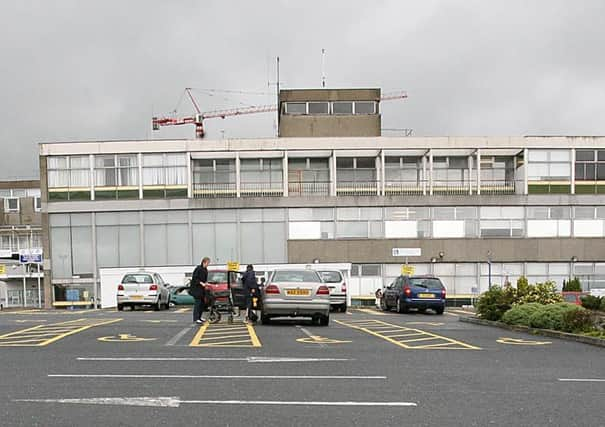Watchdog: Ulster Hospital didn't have enough senior staff


Nurse morale was low because of shortages and there were not enough junior medical staff at night and weekends, the Regulation and Quality Improvement Authority (RQIA) warned.
However, staff were compassionate and calm and showed empathy to patients.
Advertisement
Hide AdAdvertisement
Hide AdRQIA chief executive Olive Macleod said: “At the Ulster Hospital, while we observed compassionate staff who showed empathy to patients, in every area inspected we had concerns about: nurse staffing levels – which led to reports of low staff morale; patients’ care records; and training for staff.”
The RQIA published the findings of an unannounced four-day inspection at the hospital in Dundonald in February.
Mrs Macleod continued: “In the medical ward inspected we identified concerns relating to: nursing supervision; delayed patient discharge; poor patient flow; and the use of an undesignated ‘corridor’ bed, which blocked access to an emergency exit.
“Inspectors also considered staffing levels to be inadequate, including a lack of senior clinical decision makers, which impacted on the effective running of the ward. We were also advised that there was an insufficient number of junior medical staff, particularly at nights and weekends.”
Advertisement
Hide AdAdvertisement
Hide AdThe surgical ward inspected was bright and welcoming and while staff were busy, the atmosphere was calm, the report said.
However, inspectors noted that the ward facilities made efforts to maintain patient privacy and dignity challenging, with day surgery patients having to change in the ward toilets. They also noted that same-sex accommodation in patient bays was not being achieved.
“At the Emergency Department, which was busy at the time of inspection, we also observed a calm atmosphere, with staff working diligently to manage patient flow. We also noted good medical cover, with medical staff feeling supported.
“However, staff in the ED raised concerns about: crowding; staffing levels; having the relevant clinical skills; workload; and patient privacy and dignity in the department.”
Advertisement
Hide AdAdvertisement
Hide AdRQIA inspectors also highlighted essential equipment was not always available at busy times and designated rooms for vulnerable patients could not always be guaranteed.
“We were also concerned that routine safety rounds for patients were not carried out.”
While medical records were good, they observed nursing records not completed in line with Nursing and Midwifery Council best practice guidelines.
The chief executive concluded: “RQIA recognises that increases in the number of admissions places additional pressure on staff in ensuring the provision of safe, effective and compassionate care.
“However, it is vitally important that this continues to be delivered – even at times of such pressures.”